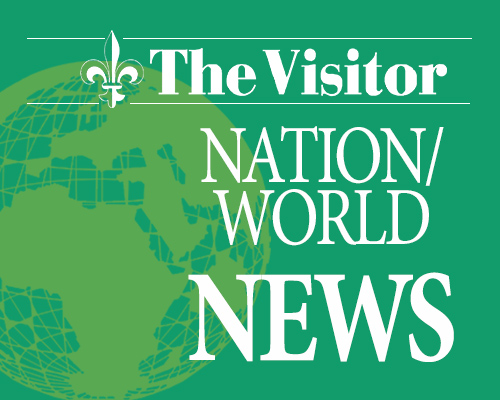PHILADELPHIA (CNS) — Jesuit Father Joseph Fitzmyer, a leading Catholic biblical scholar, died Dec. 24 at Manresa Hall, a Jesuit infirmary in Philadelphia. He was 96.
A funeral Mass was to be celebrated Jan. 5 at St. Matthias Church in Bala Cynwyd, just outside Philadelphia, followed by a burial at the Jesuit Center in Wernersville.
The priest, who was born in Philadelphia in 1920 and was ordained a Jesuit priest in 1951, is well known for his contributions to the Anchor Bible Series and for co-editing “The Jerome Biblical Commentary.”
He earned a doctorate in Semitics from Johns Hopkins University in 1956 and a licentiate in sacred Scripture a year later from the Pontifical Biblical Institute in Rome.
Father Fitzmyer was a member of the Pontifical Biblical Commission and also served as president of the U.S. Catholic Biblical Association.
An expert in the Aramaic language spoken by Christ and by many first-century Jews and Christians, the priest was noted for his work on the Dead Sea Scrolls and the Gospel of Luke. He did some of the initial work in the 1950s to prepare a concordance to the scrolls and was one of the first Americans to have direct access to the documents.
Father Fitzmyer also worked on the Catholic-Lutheran Joint Declaration on the Doctrine of Justification signed by the two churches in October 1999 after extensive dialogue.
He founded the Institute on Sacred Scripture at Georgetown University; the institute is named for him. The priest also taught at a number of schools including the now-closed Woodstock Theological Center at Georgetown University, the University of Chicago, Fordham University, Boston College and The Catholic University of America.
America, a national Catholic weekly magazine run by the Jesuits, published reaction from fellow scholars to the priest’s death on its website Dec. 24.
John Martens, a theology professor at the University of St. Thomas in St. Paul, Minnesota, described Father Fitzmyer as “a giant of biblical scholarship. No qualifiers need apply. He was not a giant of Catholic biblical scholarship, not a giant of 20th-century biblical scholarship, just a giant of biblical scholarship.”
He said the priest’s scholarship “was dedicated to understanding the Bible more thoroughly and completely. He has gone to his well-deserved rest, may he rest in peace, but his scholarship will live on because of his precision and dedication to making the Bible come alive for all who encounter it.”
Father John Meier, the William K. Warren Professor of Theology at the University of Notre Dame, wrote that some of the priest’s academic colleagues likely found him to be a “conundrum.”
“His first-class technical work, which was never afraid to raise critical questions disturbing to some, flowed from a believing Catholic whose personal life and mores were very traditional,” Father Meier said. “A devout Catholic, a faithful priest, a Jesuit fiercely loyal to his identity as such, he was also — for all his crusty exterior — a deeply compassionate Christian, ever ready to help those in need.”






















